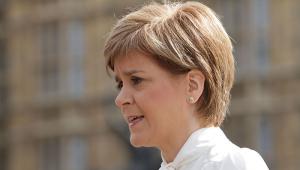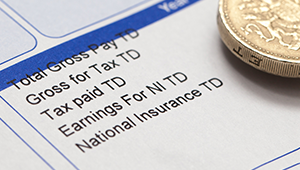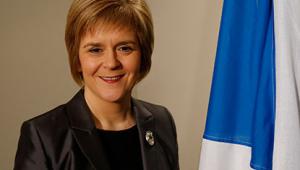Although, she dismissed union demands for above-inflation catch-up settlements by warning that increases would have to be inflation-based and affordable within the public finances.
It came as she set out a 16-bill Programme for Government, Holyrood’s equivalent of the Queen’s Speech.
Having lost more than a third of the Scottish National Party’s MPs at June’s general election, Sturgeon has been keen to use the programme to refresh her government after 10 years in office and demonstrate that its pursuit of independence does not detract from the “day job” of governing.
She told MSPs that the centrepiece of the coming parliamentary session would be a wide-ranging Education Bill, designed to close the attainment gap between pupils of different social backgrounds, ease the teacher recruitment shortage and improve the performance of Scottish schools.
The bill will create new routes into teaching, and set up new governance structures which, local authorities fear, could reduce municipal influence over school education.
Sturgeon unveiled plans to phase out petrol and diesel vehicles by 2032 – eight years ahead of the UK government’s target – and more immediately to expand substantially the provision of electrical charge points. The main road into the Scottish Highlands, the A9, will become Scotland’s first fully electric-enabled road.
“To succeed, Scotland must lead change, not trail in its wake,” she told MSPs. “We must aspire to be the inventor and the manufacturer of the digital, high tech and low carbon innovations that will shape the future, not just a consumer of them.
“To encourage others to see Scotland as the place to research, design and manufacture their innovations - for us to become a laboratory for the rest of the world in the digital and low carbon technologies we want to champion - we must also become early adopters of them. We must be bold in our ambitions.”
There is to be a Scottish National Investment Bank – a long-held SNP ambition – to back technical and industrial innovation; a new and more ambitious set of emissions targets to combat climate change, and a deposit scheme to encourage recycling of bottles and cans.
Criminal justice reforms will include an increase in the age of criminal responsibility, a presumption against prison sentences of less than one year, and a “Turing Law” to bestow automatic pardons on all people convicted in the past of homosexual offences. Free personal care for the elderly will be extended to cover younger dementia patients.
Underlying the programme is an awareness that the SNP now runs a minority government, and must do deals to get its legislation agreed. Sturgeon is under pressure from Labour, the Greens and the Liberal Democrats to use Scotland’s new tax powers to chart a different course from UK austerity.
With Finance Minister Derek Mackay starting to prepare his 2017 Budget, she gave no firm commitments on that, but said there would be a government paper to “open a discussion” on how to make responsible and progressive use of the powers to build the kind of country Scots wanted.
The Conservatives, Holyrood’s biggest opposition group, are opposed to higher taxes in Scotland. Their leader, Ruth Davidson, accused the First Minister of “opening the door” to tax rises.
“Because of the new financial powers, Scotland needs to raise closer to what it spends,” Davidson said. “Dragging Scotland down with ever more punitive taxes is not the way to do this.”












